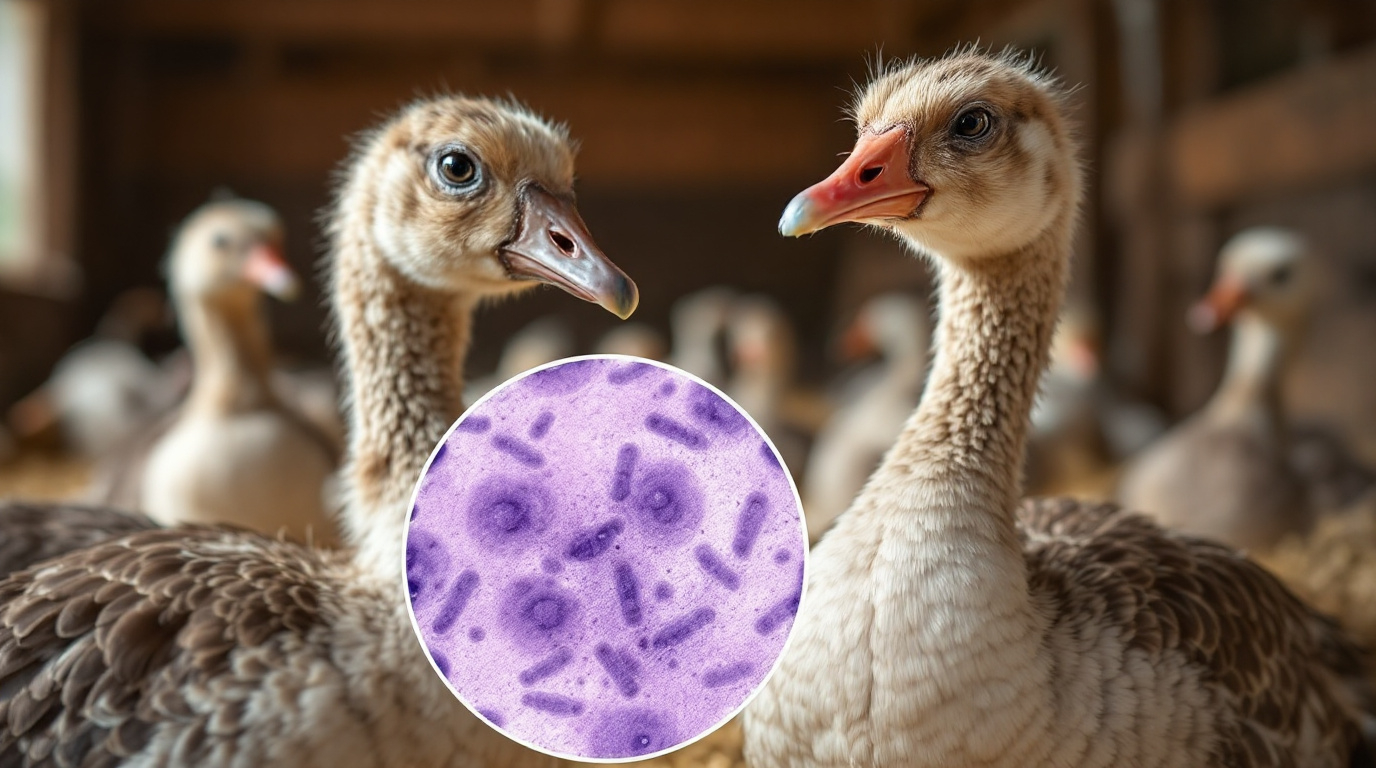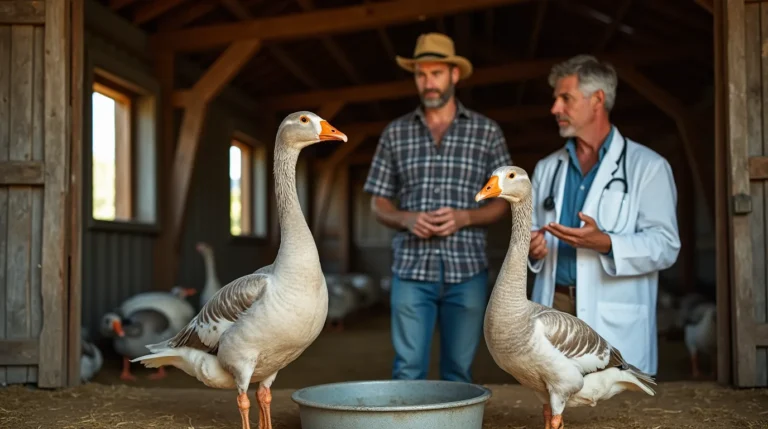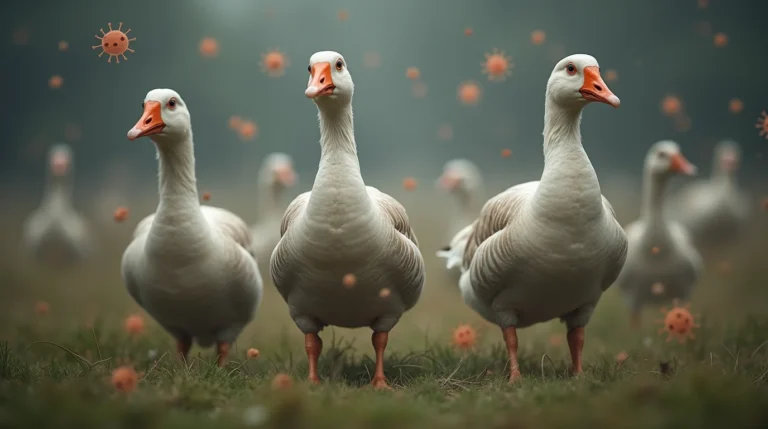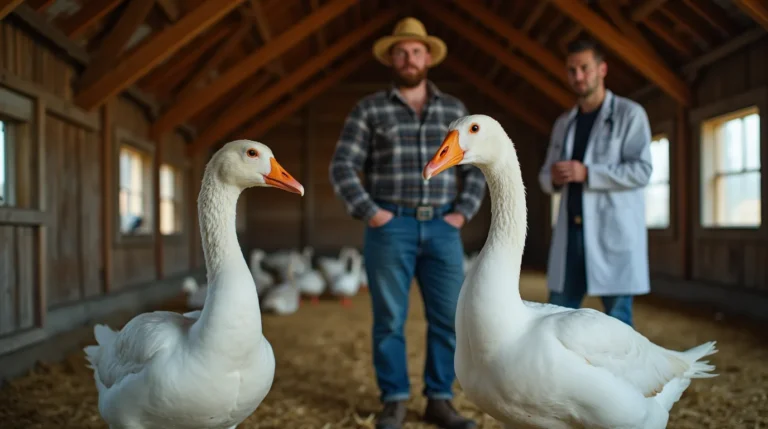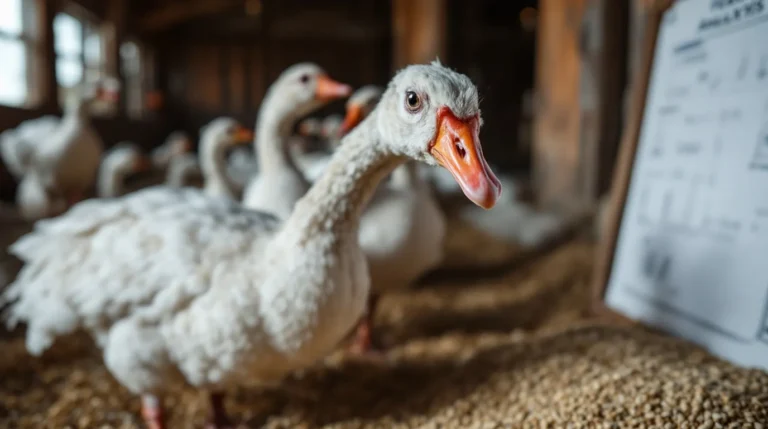Protect your geese from harmful intestinal parasites in Geese : Learn critical signs, effective treatments, and expert prevention strategies for optimal flock health.
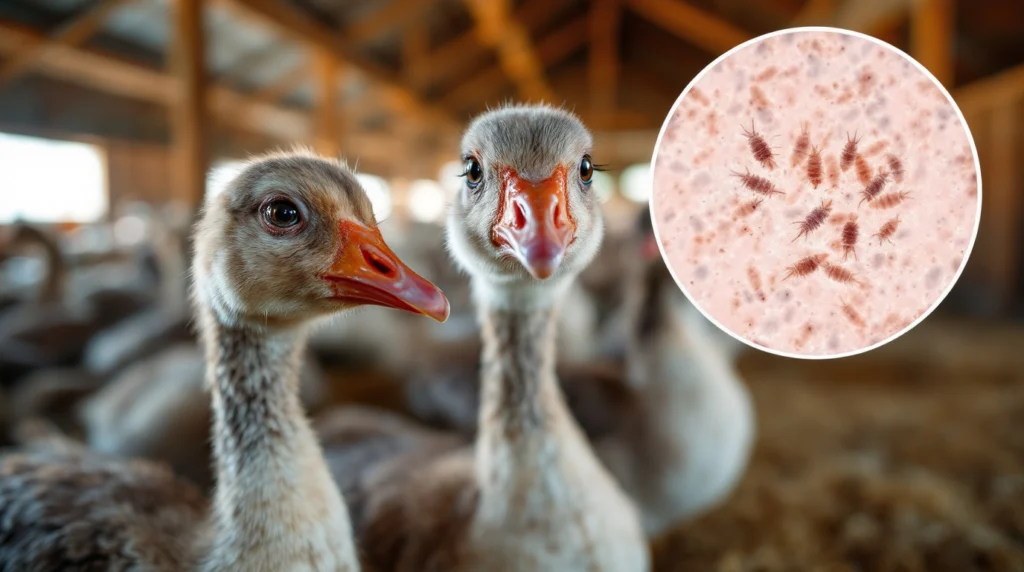
Table of Contents
Intestinal parasites pose a significant threat to goose health, potentially compromising the well-being of entire flocks and causing substantial economic losses for farmers and veterinarians. Understanding these microscopic menaces is crucial for anyone responsible for goose care, whether you’re a professional veterinarian or a small-scale poultry enthusiast.
Intestinal parasites in geese can rapidly spread, causing devastating health complications if left untreated. This comprehensive guide will equip you with essential knowledge about identifying, treating, and preventing these harmful organisms, ensuring your geese remain healthy and productive.
Understanding Intestinal Parasites in Geese
Types of Intestinal Parasites
Geese can be affected by several types of intestinal parasites, including:
- Roundworms (Ascarids)
- Most common parasitic infection
- Can grow up to 3-4 inches long
- Primarily affects young geese
- Cecal Worms
- Inhabit the cecal region of the digestive tract
- Can cause inflammation and reduced nutrient absorption
- Tapeworms
- Segmented flatworms
- Attach to intestinal walls
- Can cause significant nutritional deficiencies
- Coccidia
- Microscopic protozoan parasites
- Cause severe intestinal damage
- Particularly dangerous for goslings
4 Critical Signs of Intestinal Parasitic Infections
1. Digestive Disturbances
- Diarrhea with mucus or blood
- Inconsistent droppings
- Reduced feed intake
2. Physical Symptoms
- Sudden weight loss
- Ruffled feathers
- Lethargy and weakness
- Pale or discolored comb and wattles
3. Performance Indicators
- Decreased egg production
- Reduced growth rates
- Lower overall flock productivity
4. Behavioral Changes
- Increased aggression
- Isolation from flock
- Reduced social interaction
- Frequent preening or unusual grooming behaviors
Diagnostic Procedures
Veterinary Examination Techniques
- Fecal flotation tests
- Microscopic parasite identification
- Blood profile analysis
- Comprehensive physical examination
Laboratory Testing
- Quantitative egg count methods
- Species-specific parasite identification
- Antibiotic resistance screening
- Comprehensive parasitological panel
Treatment Protocols
Pharmaceutical Interventions
- Broad-spectrum anthelmintic medications
- Species-specific deworming treatments
- Targeted protozoan therapies
- Supportive nutritional supplements
Treatment Recommendations
- Consult veterinary professionals
- Implement targeted medication regimens
- Monitor treatment effectiveness
- Conduct follow-up examinations
Prevention Strategies
Biosecurity Measures
- Maintain clean living environments
- Implement strict quarantine protocols
- Regular habitat sanitization
- Controlled grazing areas
Nutritional Management
- Balanced diet with immune-boosting nutrients
- Regular probiotics supplementation
- Mineral and vitamin enrichment
- High-quality feed sources
Environmental Control
- Rotate grazing pastures
- Minimize contact with wild bird populations
- Control intermediate host populations
- Ensure proper drainage systems
Recommended Health Products for Geese
Amazon Affiliate Recommendations
- Comprehensive Poultry Dewormer
- Broad-spectrum treatment
- Safe for multiple bird species
- Easy administration
- Probiotic Supplement
- Supports digestive health
- Enhances immune function
- Natural ingredients
- Veterinary Diagnostic Fecal Test Kit
- At-home testing capabilities
- Accurate parasite detection
- Cost-effective screening
- Immune Booster Liquid Supplement
- Vitamin and mineral enriched
- Supports overall flock health
- Improves recovery rates
Intestinal Parasites in Geese (FAQ)
Q1: How often should I deworm my geese?
Recommended deworming frequency varies based on flock size, environment, and risk factors. Consult your veterinarian for personalized protocols.
Q2: Can human handlers contract parasites from geese?
Some parasites can be zoonotic. Practice proper hygiene, wear protective equipment, and maintain regular health screenings.
Q3: Are natural remedies effective against parasites?
While some herbal treatments show promise, they should complement—not replace—professional veterinary care.
Q4: How do I know if my treatment is working?
Monitor weight gain, droppings consistency, and overall flock behavior. Regular veterinary check-ups are essential.
Conclusion
Protecting your geese from intestinal parasites in geese , requires a comprehensive, proactive approach. By understanding symptoms, implementing robust prevention strategies, and seeking professional guidance, you can safeguard your flock’s health and productivity.
Share Your Experience! Have you successfully managed parasitic infections in your geese? Leave a comment below and help fellow poultry enthusiasts learn from your insights.
Explore more expert poultry care tips at BlithePet
References
- Veterinary Parasitology Journal, 2023
- Poultry Science Association Research Papers
- National Avian Health Database
Disclaimer: This article is for informational purposes and should not replace professional veterinary advice.

